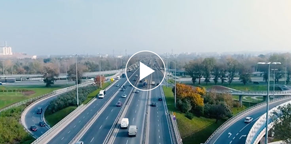If you’re an Expatriate who is new to the United States and interested in purchasing a vehicle, it’s very important that you learn the rules and laws of driving in America. One of the most important laws to educate yourself on is obeying speed limits. While following the posted speed limit should keep you out of trouble, the most common traffic tickets given out are for speeding, so it is important to be prepared.
for speeding, so it is important to be prepared.
Keep reading to learn what to do if you get pulled over for speeding in the USA.
Getting pulled over
If you are driving and a police officer finds that you are driving above the speed limit, the officer will follow behind you and turn on their lights and sirens. This means that you are being pulled over. At your earliest and safest convenience you must pull off onto the right side of the road. It is very important for your safety that you DO NOT pull over and stop on the left side of a highway. The left lane is the fastest lane and will make it very dangerous for you to pull back into traffic. Once you are pulled over you should follow the standard procedure.
Standard procedure
1. After pulling over, turn off your engine and roll down your window completely. Place both of your hands on the steering wheel of the vehicle.
NOTE: If you get pulled over when it is dark, be sure to turn on the interior light in your car.
2. Although an officer may approach you with suspicion, be as cooperative as possible.
3. Do not look for any documentation you think you may need until you are asked. If there is movement in the front seat, an officer has the right to ask the driver to get out of the vehicle.
NOTE: If you are asked to get out of the car, the officer is permitted to pat you down. If anything illegal or suspicious is found, he or she then has the right to search your car. (If your car becomes impounded, it can also be legally searched.)
4. The officer may ask to see your driver’s license and vehicle registration. You should not question as to why you are being required to show the officer these documents.
5. Depending on the questions being asked of you, it is okay to reply with a standard response of “yes” or “no” when answering an officer.
6. If the officer writes you a ticket, be cautious of what you say. Anything you say could be used against you down the line if you make the decision of challenging the ticket.
NOTE: Bribery is considered a crime. Never try to bribe an officer.
7. Tickets are typically paid for online or through the mail. You cannot pay the fine during the time you are pulled over.
NOTE: In some states an officer may ask you to sign your ticket. This does not mean that you are subject to being guilty, it just means that you’re agreeing to pay the fine or to appear in court.



